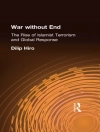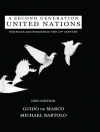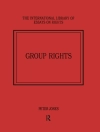The publication of the first three volumes of Open Marxism in the 1990s has had a transformative impact on how we think about Marxism in the twenty-first century.
‘Open Marxism’ aims to think of Marxism as a theory of struggle, not as an objective analysis of capitalist domination, arguing that money, capital and the state are forms of struggle from above and therefore open to resistance and rebellion. As critical thought is squeezed out of universities and geographical shifts shape the terrain of theoretical discussion, the editors argue now is the time for a new volume that reflects the work that has been carried out during the past decade.
Emphasising the contemporary relevance of ‘open Marxism’ in our moment of political and economic uncertainty, the collection shines a light on its significance for activists and academics today.
Cuprins
Foreword by Werner Bonefeld (University of York, UK)
Introduction: Open Marxism Against a Closing World – Ana Cecilia Dinerstein (University of Bath, UK), Alfonso García Vela (BUAP, Mexico), Edith González (BUAP, Mexico) and John Holloway (BUAP, Mexico)
Part I: Open Marxism and Critical Theory
1. Recognition and Revolution – Richard Gunn (University of Edinburgh, retired) and Adrian Wilding (Humboldt Universität zu Berlin)
2. A Critical Theory of Hope: Critical Affirmations, beyond Fear – Ana Cecilia Dinerstein (University of Bath, UK)
3. Objectivity and Critical Theory: Debating Open Marxism – Alfonso García Vela (BUAP, Mexico)
4. Value-Form Theory, Open Marxism and the New Reading of Marx – Frederick Harry Pitts (University of Bristol, UK)
5. Is Open Marxism an Offspring of the Frankfurt School?: Subversive Critique as Method – Mario Schäbel (University of Vienna, Austria)
Part II: State, Capital, Crisis
6. ‘Terminary’ Accumulation or the Limits of Capitalism – Sagrario Anta Martínez (BUAP, Mexico)
7. The State and Global Capital. Revisiting the Debate – Rodrigo Pascual (Universidad Nacional de Tierra del Fuego, Argentina) and Luciana Ghiotto (Universidad Nacional de San Martín, Argentina)
Part III: Democracy, Revolution and Emancipation
8. The Proletariat versus the Working Class: Shifts in Class Struggle in the Twenty-first Century – Katerina Nasioka (Cooperative Institute for Transnational Studies)
9. A New Grammar or an Anti-Grammar of Revolution? On Zapatismo and Open Marxism – Sergio Tischler (BUAP, Mexico)
10. From Revolution to Democracy: The Loss of the Emancipatory Perspective – Edith González (BUAP, Mexico)
11. The Train – John Holloway (BUAP, Mexico)
Notes on Contributors
Index
Despre autor
John Holloway is Professor of Sociology in the Instituto de Ciencias Sociales y Humanidades of the Benemerita Universidad Autonoma de Puebla in Mexico. He is the author of Crack Capitalism (Pluto, 2010), Change the World Without Taking Power (Pluto, 2019) and Negativity and Revolution (Pluto, 2008).












